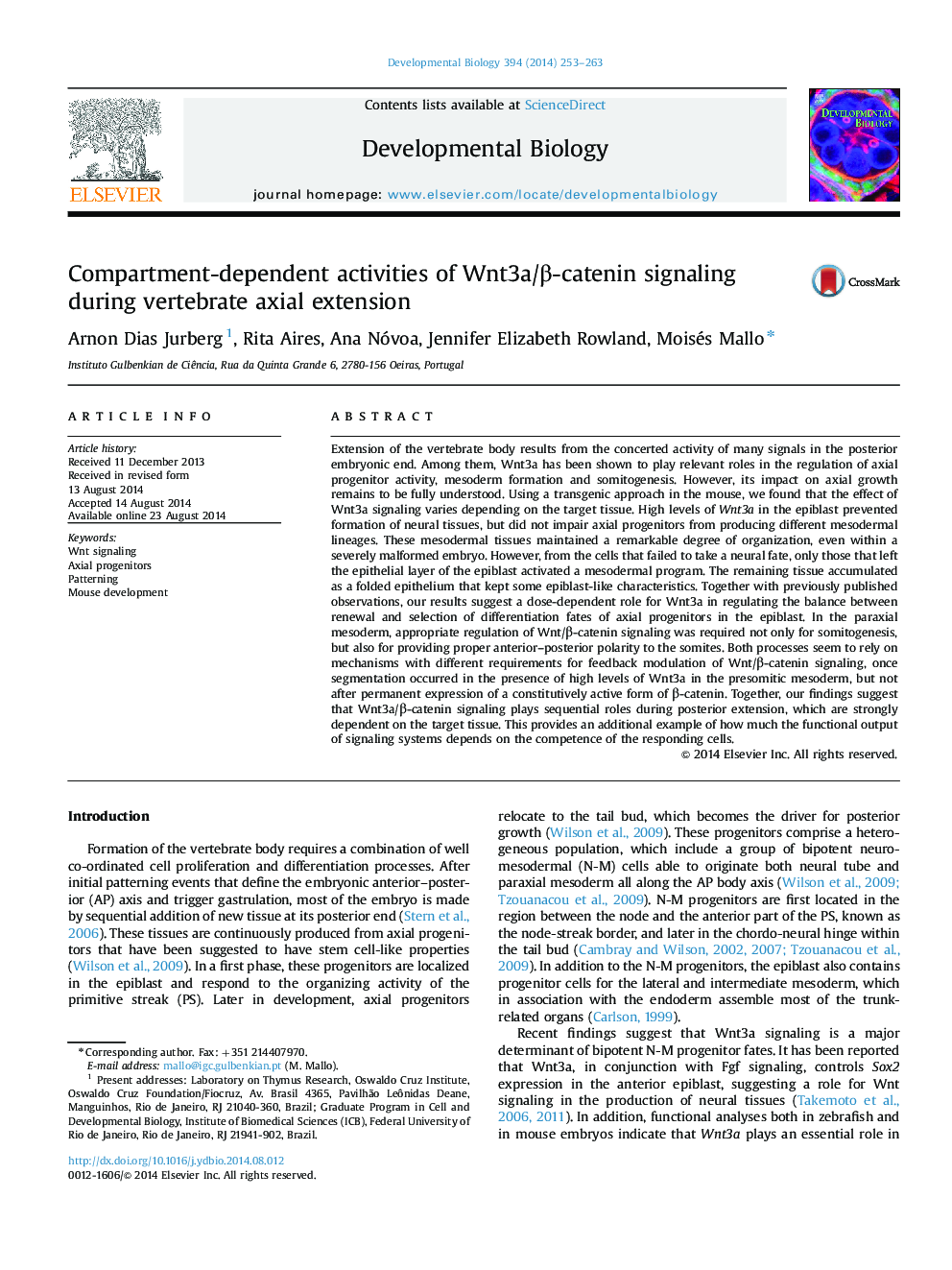| کد مقاله | کد نشریه | سال انتشار | مقاله انگلیسی | نسخه تمام متن |
|---|---|---|---|---|
| 10931561 | 1093651 | 2014 | 11 صفحه PDF | دانلود رایگان |
عنوان انگلیسی مقاله ISI
Compartment-dependent activities of Wnt3a/β-catenin signaling during vertebrate axial extension
دانلود مقاله + سفارش ترجمه
دانلود مقاله ISI انگلیسی
رایگان برای ایرانیان
موضوعات مرتبط
علوم زیستی و بیوفناوری
بیوشیمی، ژنتیک و زیست شناسی مولکولی
بیولوژی سلول
پیش نمایش صفحه اول مقاله

چکیده انگلیسی
Extension of the vertebrate body results from the concerted activity of many signals in the posterior embryonic end. Among them, Wnt3a has been shown to play relevant roles in the regulation of axial progenitor activity, mesoderm formation and somitogenesis. However, its impact on axial growth remains to be fully understood. Using a transgenic approach in the mouse, we found that the effect of Wnt3a signaling varies depending on the target tissue. High levels of Wnt3a in the epiblast prevented formation of neural tissues, but did not impair axial progenitors from producing different mesodermal lineages. These mesodermal tissues maintained a remarkable degree of organization, even within a severely malformed embryo. However, from the cells that failed to take a neural fate, only those that left the epithelial layer of the epiblast activated a mesodermal program. The remaining tissue accumulated as a folded epithelium that kept some epiblast-like characteristics. Together with previously published observations, our results suggest a dose-dependent role for Wnt3a in regulating the balance between renewal and selection of differentiation fates of axial progenitors in the epiblast. In the paraxial mesoderm, appropriate regulation of Wnt/β-catenin signaling was required not only for somitogenesis, but also for providing proper anterior-posterior polarity to the somites. Both processes seem to rely on mechanisms with different requirements for feedback modulation of Wnt/β-catenin signaling, once segmentation occurred in the presence of high levels of Wnt3a in the presomitic mesoderm, but not after permanent expression of a constitutively active form of β-catenin. Together, our findings suggest that Wnt3a/β-catenin signaling plays sequential roles during posterior extension, which are strongly dependent on the target tissue. This provides an additional example of how much the functional output of signaling systems depends on the competence of the responding cells.
ناشر
Database: Elsevier - ScienceDirect (ساینس دایرکت)
Journal: Developmental Biology - Volume 394, Issue 2, 15 October 2014, Pages 253-263
Journal: Developmental Biology - Volume 394, Issue 2, 15 October 2014, Pages 253-263
نویسندگان
Arnon Dias Jurberg, Rita Aires, Ana Nóvoa, Jennifer Elizabeth Rowland, Moisés Mallo,